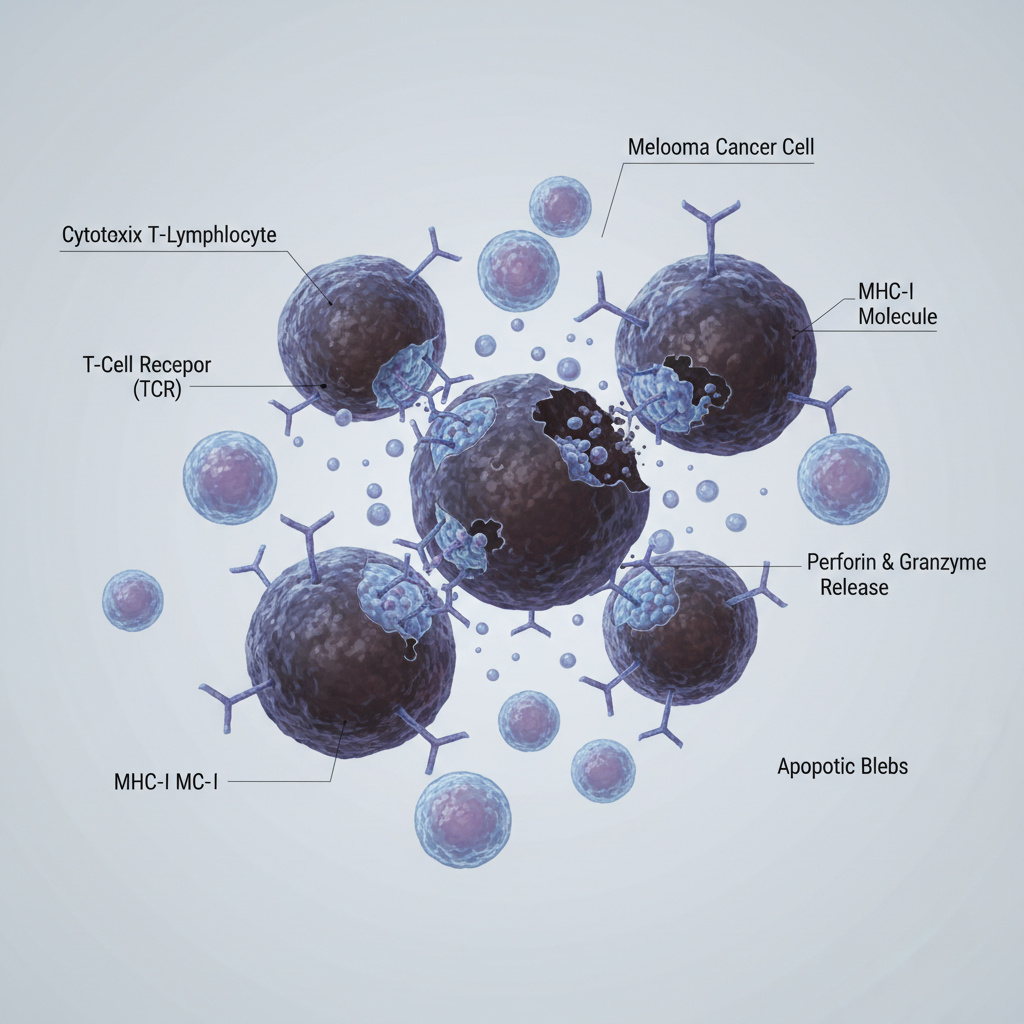Chronic lymphocytic leukemia is the most common type of leukemia in adults. The disease often develops slowly, sometimes for years, and many patients discover it by accident — during a routine blood test. The first reaction is usually confusion: “What now?” In Israel, treatment follows a clear but flexible pathway — from careful diagnostic work to choosing the most appropriate therapy.
Confirming the Diagnosis
Israeli doctors rarely rely only on the documents a patient brings with them. Very often the first step is to double-check the diagnosis. It’s not unusual for us to see someone labeled with “CLL” abroad, but after additional testing it turns out to be another form of blood disorder.
Typical tests include:
- extended blood work;
- immunophenotyping of cells — the gold standard for confirming CLL;
- genetic and molecular tests, such as TP53 mutations or 17p deletion;
- bone marrow biopsy when necessary.
In simple words, this stage is not only about confirming the disease but also about understanding its exact profile, which directly affects treatment decisions.
When Treatment Is Not Needed Immediately
Many patients are surprised to hear that therapy does not always start right away. In Israel this is called active surveillance. It doesn’t mean “doing nothing.” It means regular check-ups, blood tests, and follow-ups, so doctors can step in at the right moment.
Standard Treatment Options
When treatment is required, doctors may still use established therapies:
- Chemoimmunotherapy. A classic combination — fludarabine, cyclophosphamide, and rituximab. These regimens are less common today but may still be useful for younger patients without high-risk mutations.
- Monoclonal antibodies against CD20 such as rituximab or obinutuzumab. Sometimes given alone, sometimes in combination with other drugs.
Modern and Innovative Therapies
Over the past decade, new medicines have completely changed the outlook for CLL. Israeli centers actively use them in daily practice:
- BTK inhibitors (ibrutinib, acalabrutinib). Often prescribed when high-risk mutations are present (like TP53 or 17p deletion) or when the disease has relapsed.
- BCL2 inhibitor (venetoclax). Especially in combination with antibodies, it shows excellent results even in resistant cases.
- CAR-T therapy. Still limited, but several Israeli hospitals are already offering it to CLL patients.
- Clinical trials. We frequently see patients who had no benefit from standard options, but participation in a trial gave them new hope.
How Treatment Usually Proceeds in Israel
The process is step-by-step:
- First consultation. The doctor reviews medical history, blood tests, sometimes orders repeat diagnostics.
- Choosing a strategy. If the disease progresses slowly, patients are told honestly: “We won’t start treatment yet, we’ll keep watching closely.”
- Selecting therapy.
- Younger patients without risky mutations may still benefit from chemoimmunotherapy.
- If high-risk genetic changes are present, targeted drugs such as BTK or BCL2 inhibitors are offered first.
- If the disease relapses. Doctors consider innovative drugs, clinical trial enrollment, or CAR-T when available.
- Ongoing follow-up. Even in remission, patients remain under observation, with therapy adjusted if needed.
To put it simply — there is no single “template” in Israel. Each patient gets an individualized plan.
Support Beyond the Treatment
CLL care is not only about pills or infusions. It also includes close monitoring, managing side effects, and guidance for daily life. From experience, this continuous follow-up makes a real difference — it’s not only about living longer but about living better.
Conclusion
Treating chronic lymphocytic leukemia in Israel means combining well-established approaches with the latest advances. Some patients continue with standard therapy under close observation. Others receive cutting-edge medicines or join clinical trials. What matters most is that treatment is not “one size fits all,” but tailored to each person’s disease and situation.
For consultation with CLL specialists in Israel:
📞 Phone: +972-73-374-6844
📧 Email: [email protected]
💬 WhatsApp: +972-52-337-3108





FAQ: Questions Patients Often Ask About CLL Treatment in Israel
1. Do I always need to start treatment right after the diagnosis?
Not always. Many patients are surprised when I tell them that we don’t rush. If the disease is slow, we monitor. That means regular check-ups, not ignoring it. Sometimes years can pass before real therapy is needed.
2. What is the difference between standard chemotherapy and new drugs?
Chemotherapy works, but it can be tough on the body. The newer targeted drugs — like BTK or BCL2 inhibitors — go directly after the cancer cells. In practice, this means fewer side effects for many patients and often better results.
3. Are clinical trials safe?
People often think “trial” means experiment without control. That’s not true. A trial in Israel is heavily monitored. Patients are followed closely, and if something doesn’t go right, doctors react immediately. For some people, a trial is the only way to get access to the most advanced therapies.
4. What are the first symptoms that should make me worry?
CLL is tricky. Sometimes there are no symptoms at all, just a blood test result. Other times, patients notice swollen lymph nodes, constant tiredness, or infections that don’t go away. When I hear “I keep getting sick, colds all the time,” I know we need to check carefully.
5. How long does treatment usually last?
There is no single answer. Some patients are on pills every day, others get therapy for a fixed period and then stop. We adjust. The goal is to keep the disease under control and the patient living normally.
6. Can I live a normal life with CLL?
Yes. I always tell patients: with the therapies we have today, CLL is often managed like a chronic condition. You may have to take medicine, you may need monitoring, but many people keep working, traveling, being with family.
7. What if treatment stops working?
It happens. And honestly, this is when innovation matters most. We switch to another targeted drug, or a trial, or even CAR-T. In Israel we always look for the next option — there is rarely a point where we say, “nothing more can be done.”



























